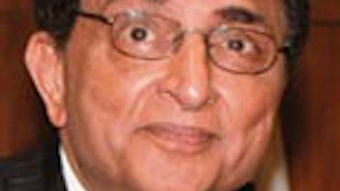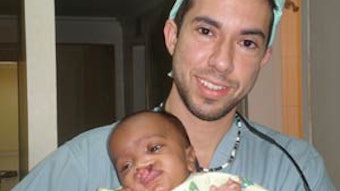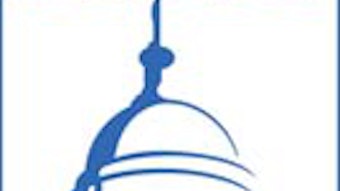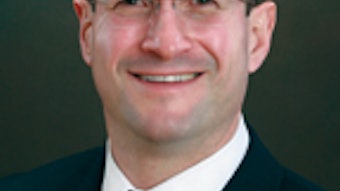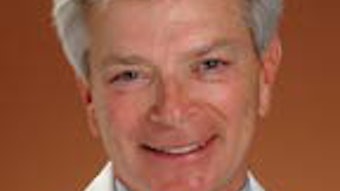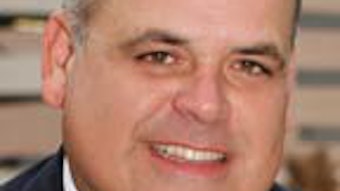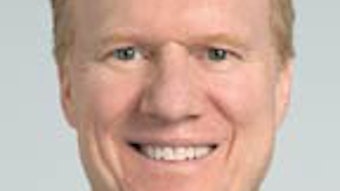Your Role in Electing Leadership
One of your most important membership privileges is choosing the Academy’s Nominating Committee. This committee, in accordance with our bylaws, is elected directly by you, the members of the Academy. In oversimplified terms, its charge is to select candidates for available offices. But in reality, its work is very complex and demanding, and requires a great deal of thoughtful preparation, discussion, and collaboration. Over the last decade, there has been a steady increase in the solemnity, determination, and desire of this group to better understand the strategic direction of the Academy and its Foundation. This group also endeavors to pair candidates with roles on the basis of preparation, dedication, and appropriate concern for the welfare of all of otolaryngology. It looks at demonstrated leadership on Academy committees, the Board of Governors and the Board of Directors. The committee weighs contributions to the annual meeting through both the Program Advisory Committee and the Instruction Course Advisory Committee and their sub-groups; work in basic science, translational, and health services research of both academic and community-based practitioners; work done on the various Education faculties and committees; contributions to the Millennium Society, Hal Foster, MD, Endowment, and the Political Action Committee; attendance at our surgical advocacy conferences; and many other related contributions. Further, the committee reviews the many other important venues for major contributions to the specialties that do not necessarily show up within the Academy structure. Many of our members are active in state legislative and regulatory oversight and advocacy in an informal manner. Others have developed great skill and expertise in health policy and physician payment policy through the CPT panel and the RUC committee. They work tirelessly behind the scenes to advocate for fairness in physician payment, coding, and billing policies with which we all must comply. Some members have worked closely with AADO, ARO, IOM, NIH/NIDCD, SUO, and other organizations whose actions and missions may parallel or intersect ours at many points. Academy members have represented our specialty in quality forums (NCQA, NQF, PCPI, SQA), government entities (military members and associations, DoD, VA), humanitarian missions (both domestic and abroad), and inter-specialty medical associations such as the ACS, AMA, CMSS, and NMA. Others make invaluable contributions through our certifying board, ABOto, or ABMS; accrediting bodies such as ACCME, ACGME, and its otolaryngology RRC; and in private enterprise through entrepreneurial business development, inventions, and device manufacturing. And as we have pointed out before, otolaryngologists are disproportionately well-represented in leadership in their communities. This is evidenced by several who have served as state and county medical association presidents, board members, and political appointees. In short, the pool of qualified candidates is both deep and wide. By pairing candidates’ strengths with our organizational strategy and our current need, the committee’s endurance, perseverance, and wisdom coalesce in the official leadership slate for your final choice. So, I want to honor the many, whose names we as members will never hear about, who are considered each year for nomination to Academy office. Every one of these individuals is an exceptional leader and deserves the honor of being nominated for office. Because the Nominating Committee keeps its conversations and deliberations private, we don’t have a public mechanism for naming and thanking all who are considered. Some of them may not even know that their names have been discussed. But I can assure all of our members that these individuals, including those who do not appear on your ballot, are great women and men dedicated to the medical profession, to otolaryngology, and to their patients, and are great models of the type of leaders we need to address the demands of the future of medicine. Last year, for the first time in a decade, the number of votes cast by our members for Academy offices increased significantly. Let’s do it again. If you save your email voting notice, put aside your ballot, or plan to come back at a later time to review the candidate statements and issues, don’t forget to come back. We need the vote, the voice, the energy, and the commitment of each member to manage successfully the transition to change that we see all around us. Thank you for doing your part. Commit now to study the issues, share your opinions, and work together to strengthen our specialty.
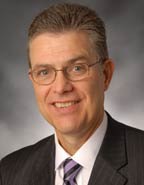 David R. Nielsen, MD, AAO-HNS/F EVP/CEO
David R. Nielsen, MD, AAO-HNS/F EVP/CEOOne of your most important membership privileges is choosing the Academy’s Nominating Committee. This committee, in accordance with our bylaws, is elected directly by you, the members of the Academy. In oversimplified terms, its charge is to select candidates for available offices. But in reality, its work is very complex and demanding, and requires a great deal of thoughtful preparation, discussion, and collaboration.
Over the last decade, there has been a steady increase in the solemnity, determination, and desire of this group to better understand the strategic direction of the Academy and its Foundation. This group also endeavors to pair candidates with roles on the basis of preparation, dedication, and appropriate concern for the welfare of all of otolaryngology. It looks at demonstrated leadership on Academy committees, the Board of Governors and the Board of Directors. The committee weighs contributions to the annual meeting through both the Program Advisory Committee and the Instruction Course Advisory Committee and their sub-groups; work in basic science, translational, and health services research of both academic and community-based practitioners; work done on the various Education faculties and committees; contributions to the Millennium Society, Hal Foster, MD, Endowment, and the Political Action Committee; attendance at our surgical advocacy conferences; and many other related contributions. Further, the committee reviews the many other important venues for major contributions to the specialties that do not necessarily show up within the Academy structure.
Many of our members are active in state legislative and regulatory oversight and advocacy in an informal manner. Others have developed great skill and expertise in health policy and physician payment policy through the CPT panel and the RUC committee. They work tirelessly behind the scenes to advocate for fairness in physician payment, coding, and billing policies with which we all must comply.
Some members have worked closely with AADO, ARO, IOM, NIH/NIDCD, SUO, and other organizations whose actions and missions may parallel or intersect ours at many points. Academy members have represented our specialty in quality forums (NCQA, NQF, PCPI, SQA), government entities (military members and associations, DoD, VA), humanitarian missions (both domestic and abroad), and inter-specialty medical associations such as the ACS, AMA, CMSS, and NMA. Others make invaluable contributions through our certifying board, ABOto, or ABMS; accrediting bodies such as ACCME, ACGME, and its otolaryngology RRC; and in private enterprise through entrepreneurial business development, inventions, and device manufacturing. And as we have pointed out before, otolaryngologists are disproportionately well-represented in leadership in their communities. This is evidenced by several who have served as state and county medical association presidents, board members, and political appointees.
In short, the pool of qualified candidates is both deep and wide. By pairing candidates’ strengths with our organizational strategy and our current need, the committee’s endurance, perseverance, and wisdom coalesce in the official leadership slate for your final choice. So, I want to honor the many, whose names we as members will never hear about, who are considered each year for nomination to Academy office. Every one of these individuals is an exceptional leader and deserves the honor of being nominated for office. Because the Nominating Committee keeps its conversations and deliberations private, we don’t have a public mechanism for naming and thanking all who are considered. Some of them may not even know that their names have been discussed. But I can assure all of our members that these individuals, including those who do not appear on your ballot, are great women and men dedicated to the medical profession, to otolaryngology, and to their patients, and are great models of the type of leaders we need to address the demands of the future of medicine.
Last year, for the first time in a decade, the number of votes cast by our members for Academy offices increased significantly. Let’s do it again. If you save your email voting notice, put aside your ballot, or plan to come back at a later time to review the candidate statements and issues, don’t forget to come back. We need the vote, the voice, the energy, and the commitment of each member to manage successfully the transition to change that we see all around us. Thank you for doing your part. Commit now to study the issues, share your opinions, and work together to strengthen our specialty.
